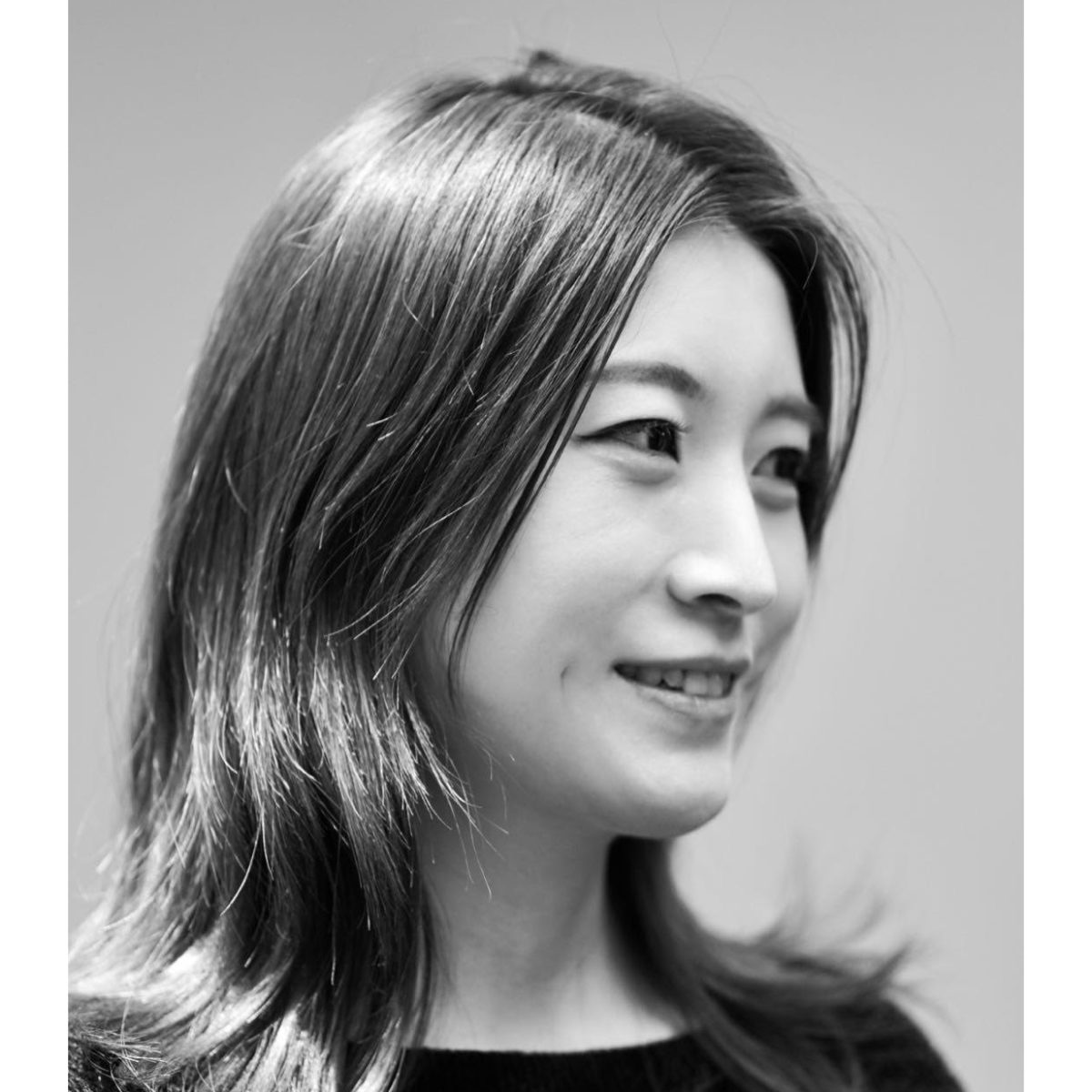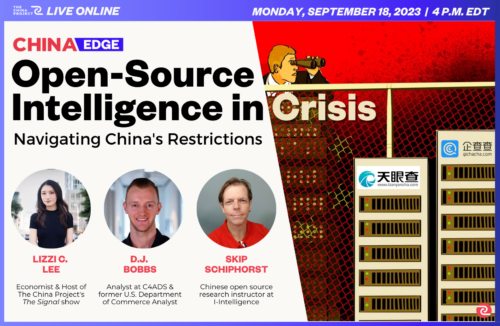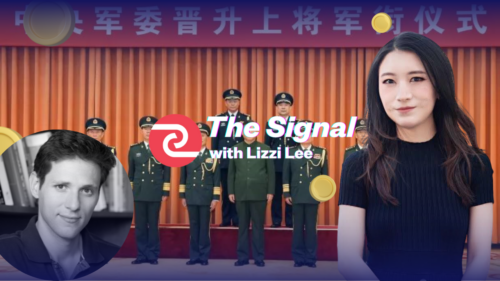How Did Beijing React to the Wagner Mutiny? | The Signal with Lizzi Lee
This week on The Signal with Lizzi Lee, Lizzi speaks with Moritz Rudolf, a research scholar at Yale Law School, about the recent revolt of the Wagner Group in Russia. Moritz shares his thoughts on how Chinese media will report on this event and provides some insight into what this could mean for the future of China and Russia’s relationship.

Below is a transcript of the video:
Lizzi Lee: Hello and welcome to this episode of Live with Lizzi Lee powered by The China Project. Today, joining me is Moritz Rudolf, a research scholar at Yale Law School. Let’s delve right into the Wagner revolt, or the Wagner mutiny. Quite a whirlwind of events in the past 24 hours. How do you anticipate those events to be perceived in Beijing? And what is media coverage like in China so far?
Moritz Rudolf: Well, for China, stability and predictable relations with Russia are the most important part. And so the revolt, mutiny, or attempted coup was definitely perceived with deep concerns. And now, of course, there’s still a lot of uncertainty as this issue is still evolving. But one can say that Putin may appear weaker at this point, and this will also be a worry, Beijing or Beijing, of course. But when it comes to the Chinese media… So at the beginning of when this was taking place, there was only from a more distant report repeating the official Russian line vis a vis the people watching, but not focusing on the details of them moving up and towards Moscow. But now there have been more detailed reports focusing on the events in more detail and about the negotiation from Lukashenko and so on.
So now there’s more official media also reporting on this issue. There is no direct criticism of Putin in the official media outlets, which is not too surprising. But the whole situation shows that this is a deep concern in China for the leadership. And it is of big interest. And this was already quite obvious when you look at Chinese social media where the whole event was discussed quite vividly.
Lizzi: Quite a curveball thrown into China’s relationship with Russia. I also wanted to turn to the Chinese premier Li Qiang’s European trip a little bit. This is Li Qiang’s inaugural foreign trip to Europe as Chinese premier. What were the primary goals and what impression did Li Qiang leave behind in European capitals?
Moritz: But I think the main goal for the Chinese side was to refocus on the positive side of the economic relations with China. This was the main goal. And in addition to that, it was aimed to show China as a responsible global power at the international level. For instance, when it comes to offering itself as a partner on fighting against climate change, but also playing a responsible role in questions of debt relief for developing countries. My impression was that you see more trust between the European Chinese relations vis a vis the US-China relations. This was quite obvious how Li Qiang was hosted and the language and the whole event by itself just underline this. But it also showed that, like Europe as a whole is still in search for a common position on how to reposition its relations vis a vis China. And you see this is of course, really complex, but it must be quite obvious when you saw that Li Qiang went to Berlin, but then he also went to Munich and where he met someone from the opposition party, who is the minister, president of Bavaria. And then he was hosted really well in a big room. And this was not just a purely economic focus,
While other European countries would not have done it like this because they have different economic interests and relations there. So it really underlines that to understand in which direction Europe is going as a whole, all those domestic factors and domestic developments are key to understanding where Europe is heading in addition to the geopolitical direction, of course. But this is also key. And the visit of Li Qiang just underlined this even more.
Lizzi: Right. So we know, you know, China’s attitude toward foreign businesses has soured quite a bit over the past few years, at least according to what’s reported in the media. How do European countries, European firms these days view China’s attitude toward foreign business? Is China still perceived as open for business, or has something changed?
Moritz: Well, the key questions of not having a level playing field of having problems with market access, those are still one of the key obstacles between Europe and China. And they have been reiterated all over again. But now the environment has become even more challenging in recent years. Just an example: the recently passed cybersecurity law that causes a lot of European businesses to think, how does this impact their ability to work in China and to do this in a meaningful and sustainable way? But having said that, look, China is still a vital market, for instance, for German car manufacturers. And so you see that the field of cooperation is still there, but it is becoming narrower in some extent. So it’s more of a security focus now as well that it’s a component. It wasn’t that central a couple of years ago, but now it’s becoming more and more of an issue. So you have issues, climate tech cooperation, for instance, where there’s still an area and a willingness to improve the relationship. But in terms when de-risking is on the agenda, there’s this point that you cannot do this instantly. So this will take time. And when you’re dealing with all those economic challenges, you still have to take into consideration that you need to find alternatives for the Chinese market and you can just wish them to mature. This is a long term process, but we are at the beginning where we are already in this process as we speak.
Lizzi: Fantastic. Another word that has been kind of in the media a lot recently is this idea of de-risk. How do European countries position themselves amid this tech rivalry between the United States and China?Is there an inclination for European countries to actually de-risk from China?
Moritz: Well, yes, there’s an interest and the inclination to de-risk from China and in this area. But there is no common detailed definition of what that means and how this would be implemented.
So on some areas where I think everybody is on the same page among the G7 and in Europe, is that when it comes to tech, that strengthens China’s military and the ability of Chinese intelligence services capabilities that this is this is a red line because it’s like one area of risk that they don’t want to emit that they are aware of. And this has an impact on their relationship with China. And they do want to de-risk. But the question is, what entails national security interests? And in the United States, there appears to be a much broader definition of this than among European countries. And finding a common European position on this would be really challenging. And in the end, it will be a difficult technical debate where the interests might be different among various interest groups, who might be capable of influencing the political debate, depending if you’re in Germany, for instance, or whether you are in Ireland or in Lithuania. It will be a really difficult technical process to make de-risking from the world into concrete coordinated action.
Lizzi: I also wanted to turn back to China and Russia a little bit. Can China effectively contribute to peace negotiations between Russia and Ukraine? What is the perception in Europe?
Moritz: Well, I think first we need to see whether Putin will choose to further escalate after the coup attempt vis a vis Ukraine or what are the likely concrete impact of this coup attempt to his approach towards China and towards approach towards Ukraine. And this is still uncertain and this will play a significant role also on whether what China can do and what China wants to do. But what we saw today was like that the Russian deputy foreign minister met with Qin Gang in Beijing. And so there’s like this close contact. There’s like a there’s this discussion going forward there. As for China’s concrete role, I think we need to differentiate between the concrete areas like for instance where China can play a role. Like for instance, on food security, fostering the Black Sea Grain initiative, also on issues relating to humanitarian relief in Ukraine and on nuclear security. But on nuclear security, like there’s an abstract view from the Chinese side who said they don’t want any threats to be made on this issue. But like concretely, there has been no condemnation of stationing Russian nuclear warheads in Belarus. So for the Chinese side, if they want to signal something, this is one of the areas they could signal.
In addition, Li Hui took a trip through Europe and but now there needs to be a follow-up for the Chinese, for instance, to update that 12-point proposal. But the Chinese, if they want to play a constructive role, they would need to take what they heard during this trip into consideration and now move this forward either with like new talks, new rounds, or with a more concrete proposal that reflects what Li Hui heard when he was when he was traveling through Europe.
Lizzi: Very helpful. Final question of the day, were are there any tangible outcomes or achievements resulting from the council visit? Should there be deliverables that we expect to see in the media in the next few days or weeks?
Moritz: Well, in Berlin, there were ten agreements that were signed. For instance, the climate transformation dialog was set up. On a ministerial level, on environmental cooperation. There was an agreement reached. And then they signed cooperation agreements with Siemens, BMW and Mercedes-Benz, which are the German economic heavyweights. Also the Chinese Ministry of Education signed a cooperation agreement with VW on skilled labor. So you see the big European, big German economic giants, they signed some agreements, but also on the global issues, mostly on fighting climate change.
There were concrete results then in Paris, China agreed on becoming more involved, like on some relief vis a vis Zambia, which is the main creditor there. And it was anticipated for China to play a stronger role there. And their moving into this direction was a significant debt relief there.
But I think that the fundamental obstacles that have led to a deterioration of the relationship are making it more complex. They are still there. They are very unlikely to be resolved in the near future. And you have those geopolitical dynamics that always can derail the relationship between Europe and China. And of course, the geopolitical tensions over Taiwan, for instance, but also the upcoming U.S. elections and the dynamics it produces within the United States.
So for Europe, they’re in a really tough spot right now. They’re trying to balance the economic cooperation and cooperation on the global issues with China, with the tougher security environment, which they also take into consideration. So it’s a really tough spot right now.






